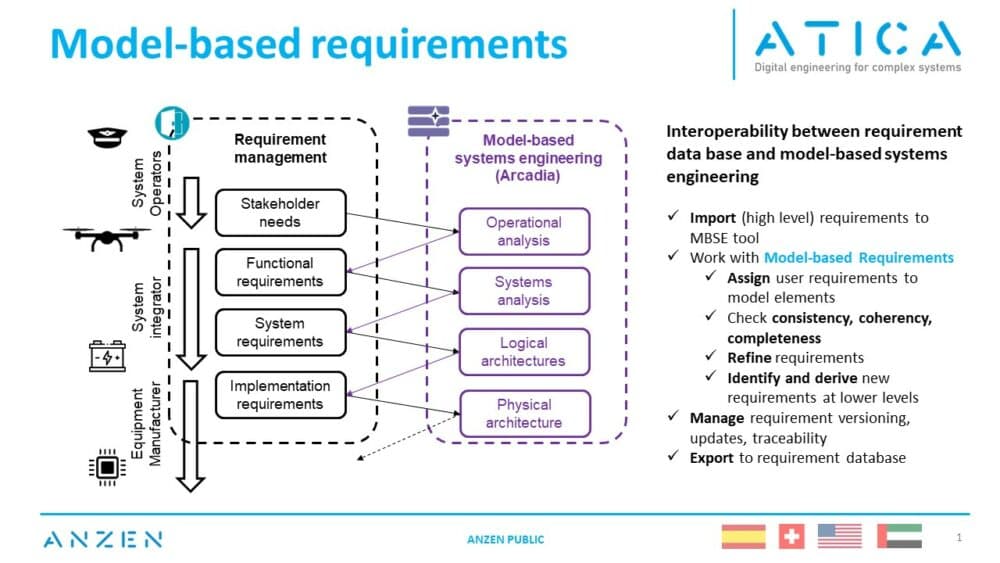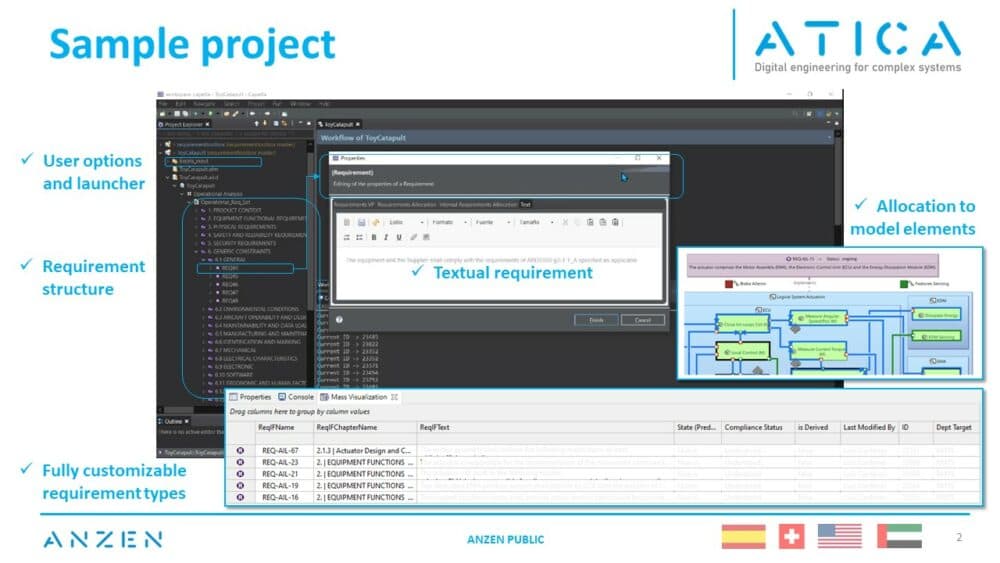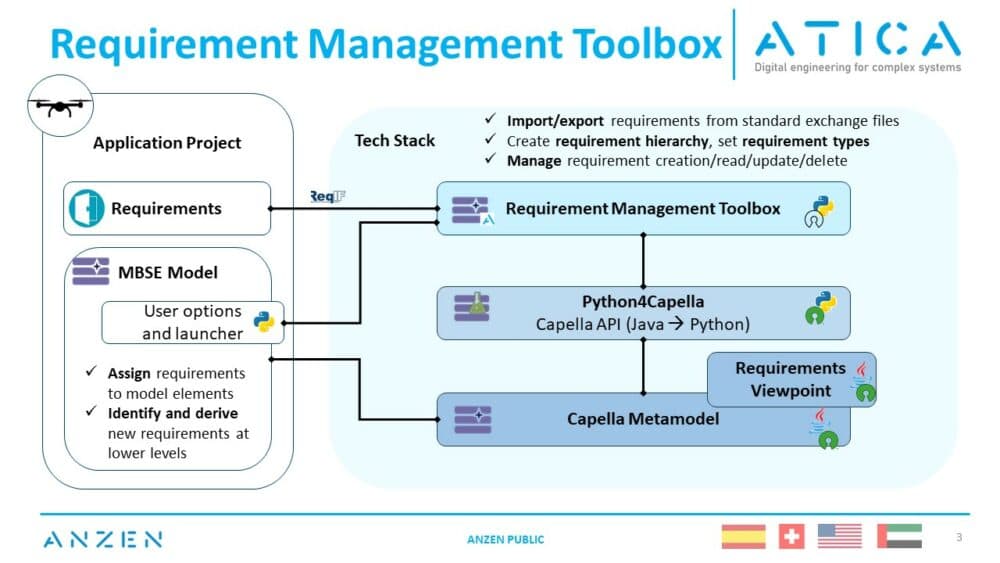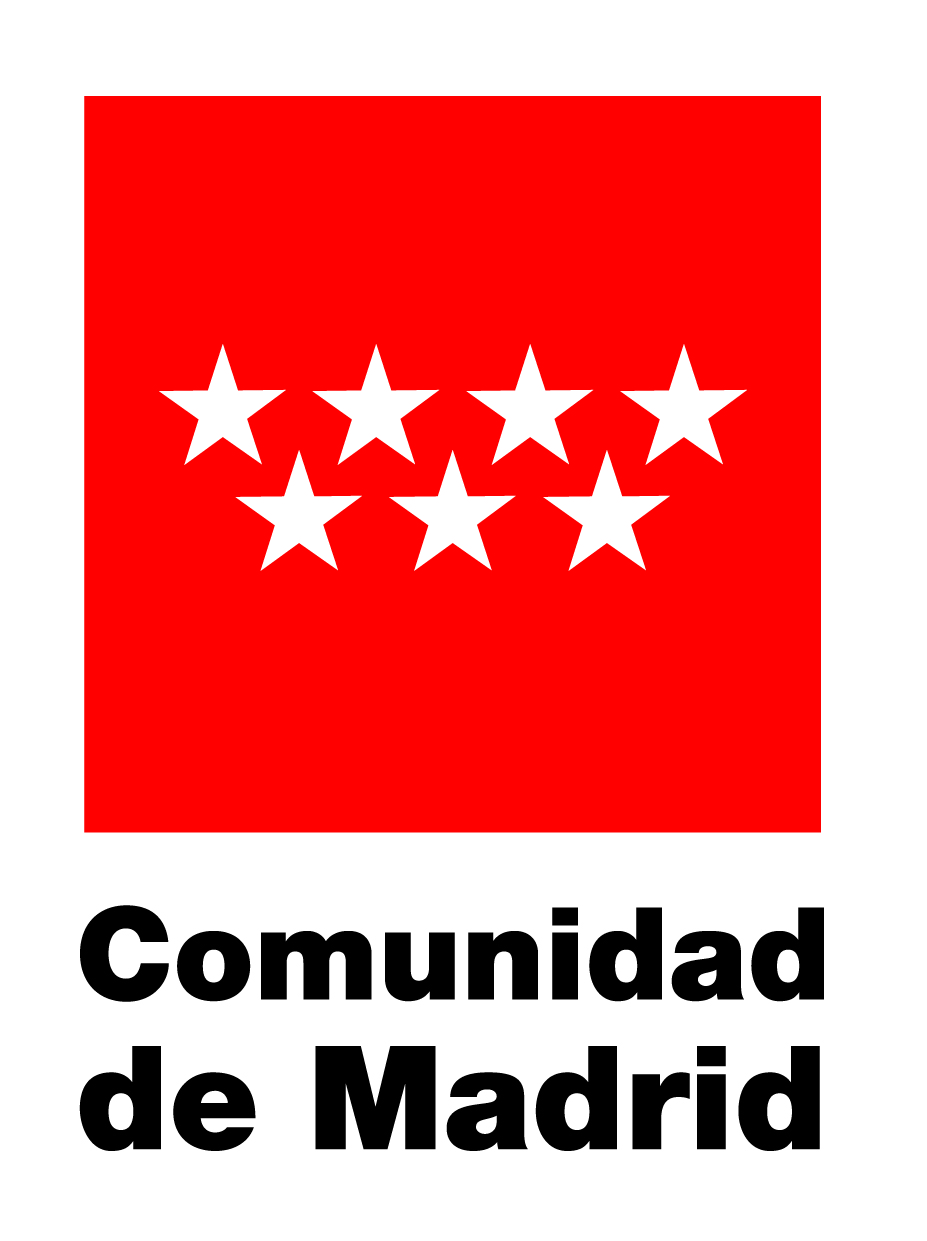Our Model-based Requirement Plugin for Capella allows to import and export requirements from standardized format (ReqIF, the typical format used for most requirement management tools such as DOORS and Polarion) into the Model Based Systems Engineering platform. Based on an initial (high level) set of requirements, the user is able to:
- Assign requirements to system elements (system architecture, product and functional breakdowns, use-case descriptions…)
- Analyze, curate and refine requirements linked to model elements
- Check consistency, coherency and completeness
- Identify and derive requirements across different system architectures and abstraction levels (operational, system analysis, logical architectures and physical implementation layer)

Capabilities
The plugin allows to import a requirement data base, automatically infer requirement types and replicate the requirement structure and contents in the Capella MBSE tool.
It completes and extends the Requirement Viewpoint of Capella; supporting additional functionalities including export of ReqIF files (ideal to bring back to the requirement management tools newly created requirements along the MBSE process).

Extensibility and customization
The plugin is based on the Requirement Viewpoint and Python4Capella; both publically available in open source.
A high-level API on Python is provided to operate with requirements and create fully customizable scripts to automate tasks.

Get started!
The plugin is easy to use by any MBSE engineer with basic notions of Capella.
Import from requirement database
Import requirements using an exchange file in table or ReqIF format. The toolbox allows to manage requirement types and custom attributes, replicating the structure used in the requirement management tool (DOORS or similar).
Manage requirements directly in Capella
Create new requirements, add custom attributes and customize the visualization using the new dashboard that emulates a requirement management tool.
Export requirements to requirement database
Synchronize the work done in Capella with the requirement data base using the export feature. Supported formats are table and ReqIF.
Use case example – interoperability with ReqView
ReqView is a requirement management tool supporting advanced workflows in terms of traceability, version control and report generation. The tool is specially suited to foster collaboration between different stakeholders thanks to its enhanced capabilities for importing and centralizing requirements and data from different sources.
In the example, Capella is used as source of architectural data about the system, and requirements defined in Capella are shared with ReqView using the requirement export feature from the ATICA toolbox, generating an exchange file in ReqIF.
Get in touch
Feel free to reach out to us to get additional info and request the toolbox -> Contact




